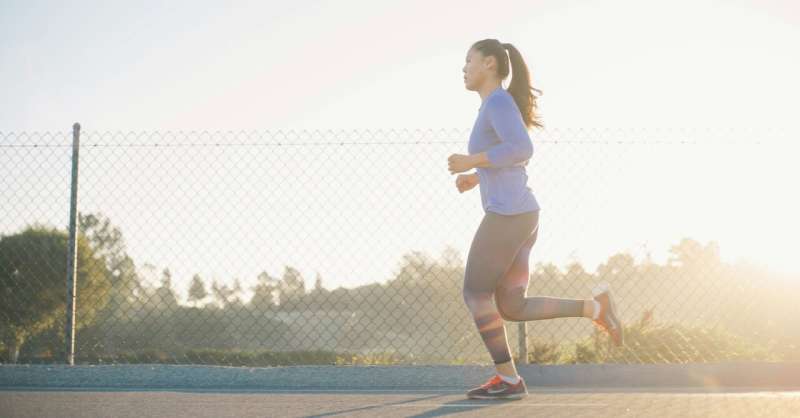This article has been reviewed according to Science X's editorial process and policies. Editors have highlighted the following attributes while ensuring the content's credibility:
fact-checked
trusted source
proofread
Pregnant pause? Elite athletes challenge norms and perceptions when expecting

When you're an elite athlete, the stakes are high. But add pregnancy to the mix and the challenges can rise—not only from mixed messages about the safety of training while pregnant, but also from a lack of support from coaches, health practitioners, and governing bodies.
Now new research from the University of South Australia has found that contrary to common concerns, elite athletes often report fewer pregnancy-related complaints (compared to non-athletes) and often displayed improved athletic performance after giving birth. The research is published in the journal Sport in Society.
Specifically, the study found that elite female athletes:
- Have fewer common complaints during pregnancy and delivery than non-athletes, dispelling the myth that intense exercise during pregnancy may lead to adverse birthing outcomes for the mother and child.
- Can expect similar or improved athletic performance after pregnancy, as post-pregnant athletes display significant increases in maximum oxygen consumption, which is vital for elite endurance sports.
- Prioritise quality over quantity in their training, which delivers improved performance by mitigating overtraining and risk of injury.
- Experience positive effects of motherhood on athletic performance. Returning to elite sports after pregnancy improves athletes' performance due to the athletes more positive outlook on their well-being.
Lead researcher and UniSA Masters student Brooke McGregor says the findings challenge prevailing notions about the impact of motherhood on elite athletic performance.
"For a long time, female athletes have felt unsure about how pregnancy and elite sports can coexist. They've heard mixed messages about safety and training and have felt pressure to conform to societal norms of motherhood. As a result, many had chosen to end their sporting careers," McGregor says.
"But with prominent athletes such as Matildas football player Katrina Gorry proving that motherhood and elite sports can thrive together, it's time to revisit that status-quo.
"In this research, we focused on understanding the experiences of elite athletes during pregnancy and motherhood and identified any key gaps for future research to explore.
"The good news is that elite athletes not only reported fewer pregnancy-related complaints than non-athletes, but that they also had similar or improved athletic performance levels post-pregnancy.
"Elite athletes also prioritized quality over quantity in their training, which led to improved performance and reduced the risk of overtraining. Furthermore, many saw motherhood as a significantly positive experience that improved overall well-being and performance."
Understanding the experiences of elite athletes during pregnancy and motherhood can inform the development of policies and practices within sports organizations, governing bodies, sponsors and coaches.
More information: Brooke McGregor et al, A scoping review of the experiences of elite female athletes concerning pregnancy and motherhood, Sport in Society (2023). DOI: 10.1080/17430437.2023.2270438




















